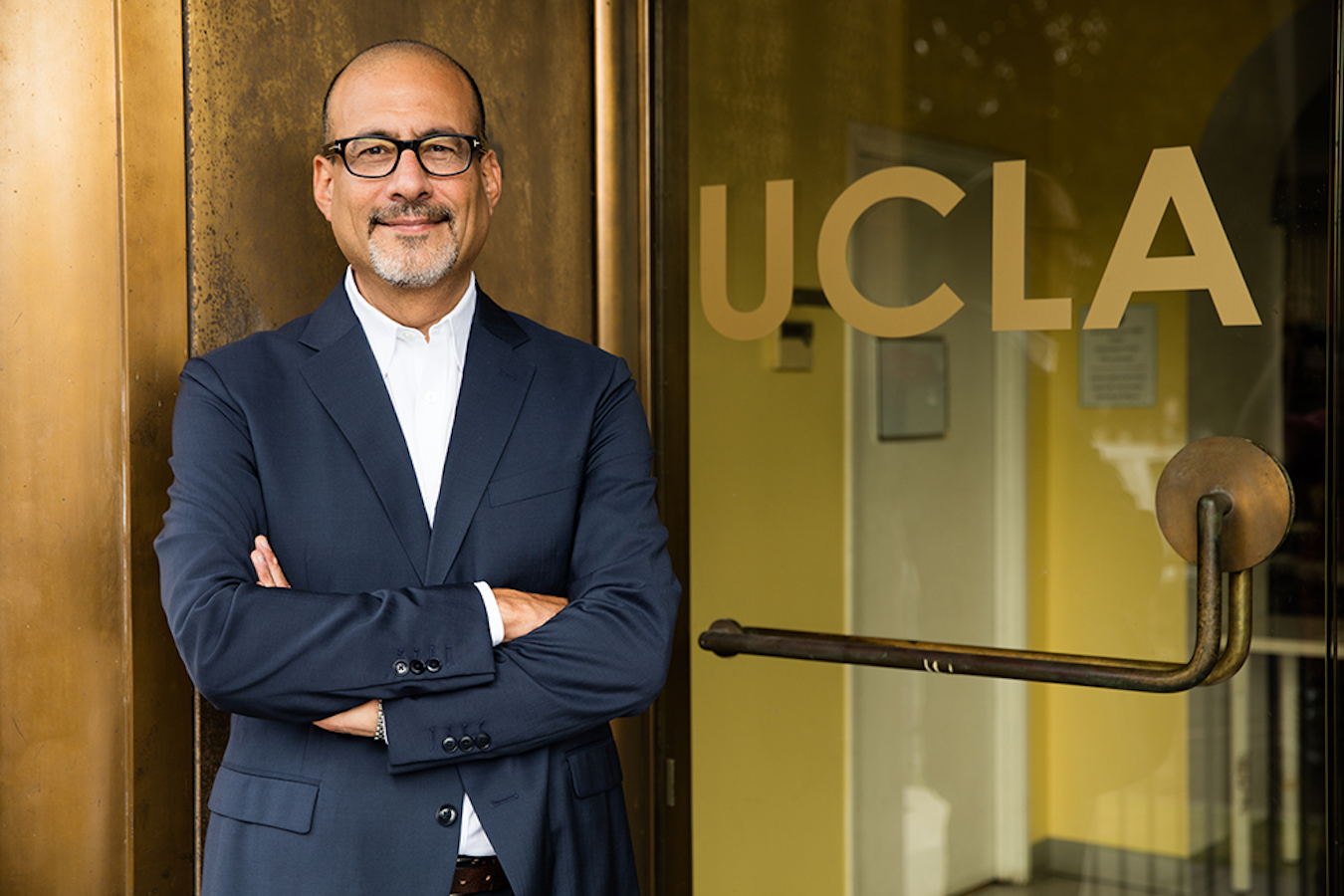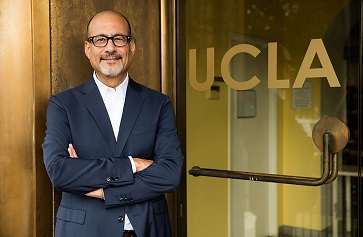Engaging with the world: Q&A with Abel Valenzuela, interim dean of social sciences

Abel Valenzuela | UCLA
Jonathan Riggs | October 5, 2022
Abel Valenzuela Jr. has been a faculty member in the UCLA College’s Division of Social Sciences for nearly three decades, serving as a professor of labor studies, Chicana/o and Central American studies, and urban planning. He was also the director of UCLA’s Institute for Research on Labor and Employment and is a nationally recognized authority on labor issues, immigration, and urban poverty and inequality.
Last month, Valenzuela took on the role of interim dean of social sciences following the appointment of the division’s former dean, Darnell Hunt, to the post of executive vice chancellor and provost. He will remain in the position through the end of the 2023–24 academic year.
Valenzuela spoke to us about to us about charting a path forward for the division, the importance of public engagement and how working as a dishwasher and “carwashero” in his early years instilled a work ethic that still drives him.
What does it mean to follow in the footsteps of former Dean Hunt?
Darnell Hunt is a longstanding faculty member and a gifted administrator and scholar who has pushed his discipline and the social sciences division on a formidable pathway of local and civic engagement, problem-solving and driving policy. He’s done this by drawing on UCLA’s greatest talent — its faculty and student body.
During my own leadership of the Institute for Research on Labor and Employment, I was able to enhance our well-established reputation for engaging Los Angeles through empirical, policy-driven research and by providing our students with research opportunities on topics important to their own lives. In my work, I often consulted with Dean Hunt to share benchmarks, discuss opportunities and ensure that our work was aligned and supported by the division. He was instrumental to our growth and success.
As I look ahead to this next chapter, I feel honored to continue his mission, and I’m confident that our shared efforts will enhance and strengthen UCLA’s public mission and dedication to excellence in problem-solving in academic research, public policy and other areas that impact the world and people’s lives.
What qualities make the social sciences division special?
The division is large and robust and includes nearly 20 academic departments and programs — and it’s driven by brilliantly accomplished faculty and students who engage deeply and thoughtfully with each other.
That idea of engagement is paramount — not only within the university but, importantly, with the broader world. The research being done in our division engages every corner of our city and our world, and it has a formidable impact. I continue to be amazed, as I reflect on my 30 years at UCLA, at all the accomplishments and discoveries our division makes on a regular basis. When I travel, I marvel at the impact our alumni are having in the world — their reach is seemingly everywhere you turn.
What are your top priorities as interim dean?
Dean Hunt was an excellent steward of the division, and his visionary and steadfast focus on changing the world through local engagement and on promoting social science that matters and that focuses on the public good are all priorities that align with my own work and philosophy. In my new leadership role, that vision will continue.
In addition, his dedication to faculty recruitment and retention and to advocating for our division with senior leadership are priorities I will be embracing as interim dean.
And finally, I intend to devote my attention to two key matters: staff morale and workplace issues, and graduate student funding — both critical to maintaining excellence in our division, as well as our competitive edge.
How can the members of the division show support now and going forward?
We can build community through reaching out to each other and also by being cognizant of the fact that we are navigating uncertain times. We need to be patient, respectful of others and kind to a fault in supporting one another.
Secondly, if you have the resources and are able to give, give to UCLA so that we can redistribute your generosity in the form of fellowships, summer internships, and in other ways that build community and support our students through research and similar opportunities.
You’ve been a teacher for a long time. What does teaching mean to you?
Teaching is connecting. It’s gratifying and exhilarating. It’s also a lot of hard work. Teaching is reciprocal — you learn when you teach. Some of the best teachers and classes in the world are here at UCLA.
My favorite advice to share with students when we discuss civic, cultural and other types of interventions is that the research process is long, and when you’re trying to impact policy, that impact is incremental. Patience is a virtue, and if you have it, you can use it in meaningful and effective ways. Small, steady steps and forward movement are the key to winning — our work is a marathon, not a race.
Is there an interesting or little-known fact about you we could share?
As a teenager, I worked at McDonald’s; as a Union 76 “carwashero” — a vacuum attendant, to be precise; as a dishwasher at White Memorial Hospital in Boyle Heights; and shortly after high school graduation, I became a bank teller. Hard work and multiple skill sets have always been a part of my experience and will guide my work ethic for the division.
How will you determine whether you’ve been successful?
Beyond the standard metrics UCLA uses to evaluate deans, I’ll leave it up to my colleagues — department chairs, research unit directors, faculty members and students — to say if my work as interim dean surpassed their expectations and standards. At UCLA, we’re all very vocal!
Finally, I’ll constantly remind myself that enhancing student success and excellence in academic outcomes is a primary catalyst in all of my decision-making.
I’m honored, humbled and thankful to the campus’s senior leadership and to Executive Vice Chancellor and Provost Hunt for their confidence in me as I undertake this new leadership assignment.
This article originally appeared in the UCLA Newsroom. For more of Our Stories at the College, click here.




